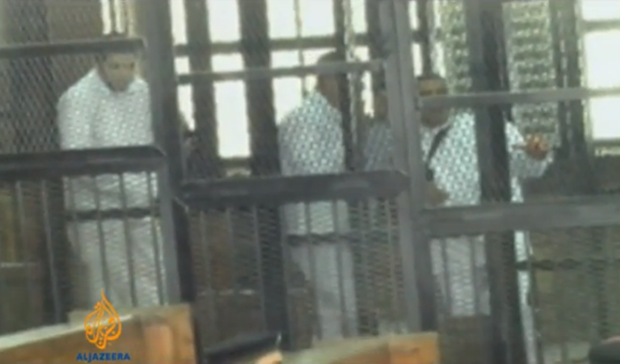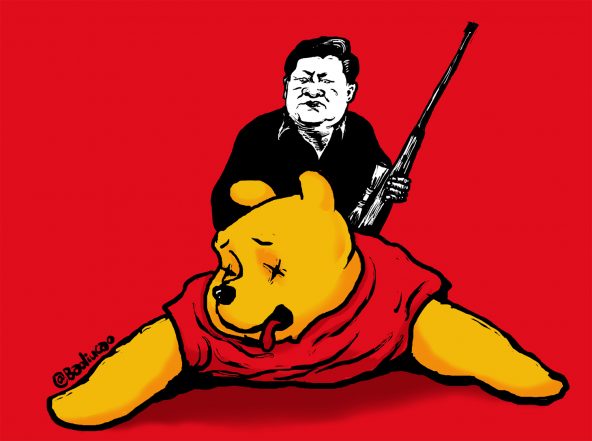Egypt’s recently sentenced three Al Jazeera journalists to seven years in prison under the country’s anti-terrorism laws. Others, tried in absentia, were given ten years. In light of this, the Index Youth Board this month asked Index’s younger readership to consider the question: When does giving a platform to extremist views through art or journalism become an act of terrorism? And should artists or journalists be exempt from terrorism laws, or should inflammatory works be banned?
Some readers expressed concern over how certain authorities might use the term “terrorism” too liberally, or even corruptly. A number of recent articles have questioned whether or not the UK’s legal definition of terrorism is too wide and threatens to criminalise us all; the board’s own Morgan Meaker wrote that “Branding artists as terrorists doesn’t silence them, it only proves their relevance.”
Index brought together young people to discuss the issue in two workshops, one in the organisation’s offices and one at the youth arts centre Platform in Islington. Both events sparked many new opinions and questions. Some pointed out the difficulty in defining works of art and journalism, while others debated whether or not anything that is trying to manipulate people’s thoughts can be considered an act of terrorism.
On the #IndexDrawtheLine Twitter feed the responses varied greatly, with some readers putting emphasis on the intentions behind the works in question, whilst others claimed that all art and journalism is politically loaded. What seems to be agreed on, however, is the issue of the viewer’s perspective. @lightielikeefua pointed out that a work of art or journalism can be misinterpreted as an act of terrorism if the government or the public doesn’t like or understand it; as @sboy9700 wrote, “One’s freedom fighter is another’s terrorist.”
Explore the responses to this month’s question on Draw the Line.




